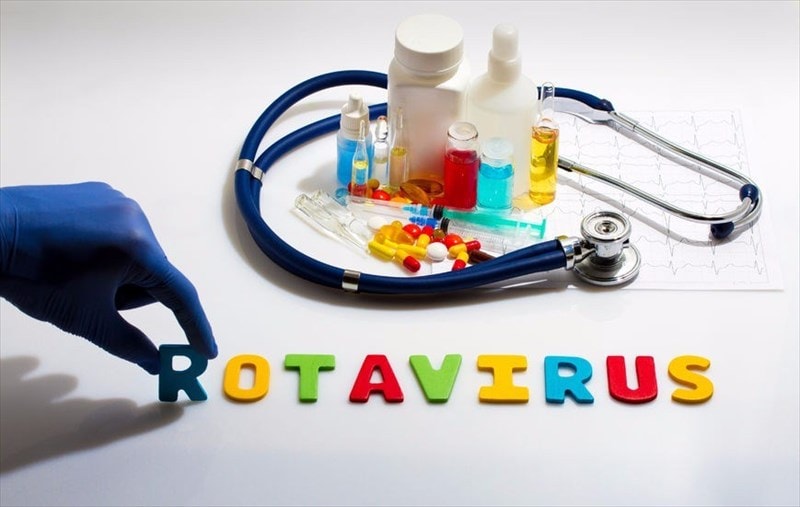What Is Rotavirus: Symptoms, Transmission, Treatment and Prevention

Do you know what rotavirus is?
If you’re curious about its symptoms, how it spreads, and the best ways to prevent and treat it, then you’ve come to the right place.
In this article, we will provide you with all the essential information you need.
From understanding the symptoms to recognizing them in children, we’ll cover it all.
So, let’s dive in and discover everything you need to know about rotavirus!
Key Takeaways
- Symptoms of rotavirus include fever, vomiting, and diarrhea, with the severity ranging from mild to severe.
- Rotavirus is highly contagious and can spread through direct contact with contaminated surfaces, ingestion of contaminated food or water, and close contact with infected individuals.
- Prevention measures such as thorough handwashing, avoiding close contact with infected individuals, regular disinfection of surfaces, and vaccination are crucial in preventing rotavirus infections.
- Treatment options for rotavirus focus on rehydration with oral rehydration solutions, the use of probiotics to reduce symptom severity and duration, and seeking medical help for appropriate treatment options.
Understanding Rotavirus Symptoms
The symptoms of rotavirus often include fever, vomiting, and diarrhea. Recognizing early symptoms is crucial to ensure prompt medical attention and appropriate treatment.
If you notice your child experiencing a sudden onset of fever, accompanied by vomiting and watery diarrhea, it is important not to ignore these signs. The severity of symptoms can vary from mild to severe, with some children experiencing only a few loose stools, while others may have frequent episodes of vomiting and diarrhea.
In severe cases, dehydration may occur, leading to lethargy, dry mouth, and decreased urine output. It is essential to be aware of these symptoms and seek medical help if necessary to prevent complications and ensure a quick recovery for your child.
How Rotavirus Spreads: Transmission Explained
To understand how rotavirus spreads, you should know that it is highly contagious and can be transmitted through direct contact with contaminated surfaces or by ingesting contaminated food or water. Here are some key points to keep in mind:
- Wash your hands thoroughly and frequently with soap and water.
- Avoid close contact with individuals who have rotavirus infection.
- Disinfect surfaces regularly, especially in areas where rotavirus might be present.
- Practice good hygiene when preparing food and ensure it is properly cooked.
Common sources of rotavirus contamination include:
- Public places with poor sanitation, such as public restrooms or childcare centers.
- Contaminated water sources, such as lakes or pools.
- Food that has been handled by infected individuals.
- Objects or surfaces that have come into contact with the virus, such as toys or doorknobs.
Effective Treatments for Rotavirus
Remember, it’s important to stay hydrated when you have rotavirus, so make sure to drink plenty of fluids.
When it comes to treatment options for rotavirus, there are no specific medications that can cure the virus itself. However, there are medication alternatives that can help manage the symptoms and prevent complications.
One such alternative is the use of oral rehydration solutions (ORS) which contain a balanced amount of salts and sugars to help replenish the lost fluids and electrolytes. These solutions are readily available and can be easily prepared at home.
Additionally, probiotics have shown some promising results in reducing the severity and duration of rotavirus symptoms. These are live bacteria that can restore the natural balance of gut flora.
It’s always best to consult with a healthcare professional to determine the most suitable treatment options for you or your child.
Preventing Rotavirus Infections: Key Strategies
One effective strategy for preventing rotavirus infections is ensuring proper hand hygiene by regularly washing your hands with soap and water. This simple act can significantly reduce the risk of contracting rotavirus, as the virus is commonly spread through contaminated hands. By washing your hands thoroughly, you can remove any potential germs and prevent them from entering your body.
Additionally, vaccination plays a crucial role in preventing rotavirus infections. Vaccines are available and recommended for infants, as they provide protection against the most common strains of rotavirus. It’s important to follow the recommended vaccination schedule to ensure maximum protection.
Recognizing Rotavirus Symptoms in Children
Recognizing the symptoms of rotavirus in children can be crucial for early intervention and treatment. By being aware of the signs, you can quickly identify if your child is suffering from a viral infection. Here are some symptoms to look out for:
- Diarrhea: Rotavirus infection often leads to severe diarrhea, which can last for several days.
- Vomiting: Children with rotavirus may experience frequent vomiting, leading to dehydration.
- Fever: A high temperature is a common symptom of viral infections, including rotavirus.
Remember, recognizing pediatric illness is essential for timely medical intervention. If you notice these symptoms in your child, it’s crucial to seek medical attention promptly. Early diagnosis and treatment can help alleviate the symptoms and prevent complications.
Stay vigilant and keep an eye out for these signs to ensure your child’s well-being.
The Importance of Early Detection and Diagnosis
If you suspect your child may have a viral infection, it’s crucial to seek medical attention promptly for early detection and diagnosis. Early intervention and prompt diagnosis are essential when dealing with viral infections, such as rotavirus.
By identifying the infection early on, you can ensure that your child receives the appropriate treatment and care. The symptoms of rotavirus, such as diarrhea, vomiting, and fever, can be similar to other illnesses, making it important to consult a healthcare professional for an accurate diagnosis.
Through early detection, healthcare providers can implement appropriate interventions to alleviate symptoms and prevent complications. Additionally, early diagnosis allows for the implementation of preventive measures, such as vaccination, to protect your child and prevent the spread of the virus to others.
Therefore, don’t hesitate to reach out to a healthcare professional if you suspect your child may have a viral infection.
Proven Prevention Methods for Rotavirus
It’s important to follow proven prevention methods for rotavirus, such as practicing good hygiene and getting vaccinated. Rotavirus is highly contagious and can spread easily through contact with contaminated surfaces or by ingesting the virus. By adopting these prevention strategies, you can reduce your risk of contracting and spreading rotavirus.
One of the most effective ways to prevent rotavirus is through vaccination. Vaccination methods, such as the oral rotavirus vaccine, have been proven to significantly reduce the incidence of rotavirus infections. Additionally, practicing good hygiene, such as washing your hands frequently with soap and water, can help prevent the spread of the virus.
To further illustrate the importance of following prevention methods, here is a table highlighting some key strategies:
| Prevention Strategies | Vaccination Methods |
|---|---|
| Practicing good hygiene | Oral rotavirus vaccine |
| Washing hands frequently | |
| Avoiding contact with infected individuals |
Frequently Asked Questions
Can Adults Get Infected With Rotavirus?
Yes, adults can get infected with rotavirus. Although it is more common in children, adults with weakened immune systems or certain risk factors, such as travel to areas with poor sanitation, are at higher risk.
What Is the Incubation Period for Rotavirus?
The incubation period for rotavirus refers to the time between exposure to the virus and the onset of symptoms. It can range from 1 to 3 days. During this period, you may not experience any symptoms.
Is There a Vaccine Available for Rotavirus?
Yes, there’s a Rotavirus vaccine available. It’s an effective way to prevent the illness. Additionally, there are various treatments for Rotavirus which can help alleviate symptoms and speed up recovery.
Can Rotavirus Be Transmitted Through Breastfeeding?
Yes, rotavirus can be transmitted through breastfeeding. It is important to take necessary precautions like practicing good hand hygiene to prevent the spread of the virus to your baby.
Are There Any Long-Term Complications Associated With Rotavirus Infections?
Long-term effects of a rotavirus infection can include complications and a potential impact on your child’s development. Treatment options are available, and while natural immunity can develop, vaccination provides long-term immunity against rotavirus.









